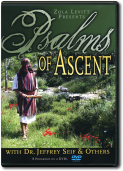
Dear Ministry Partner,
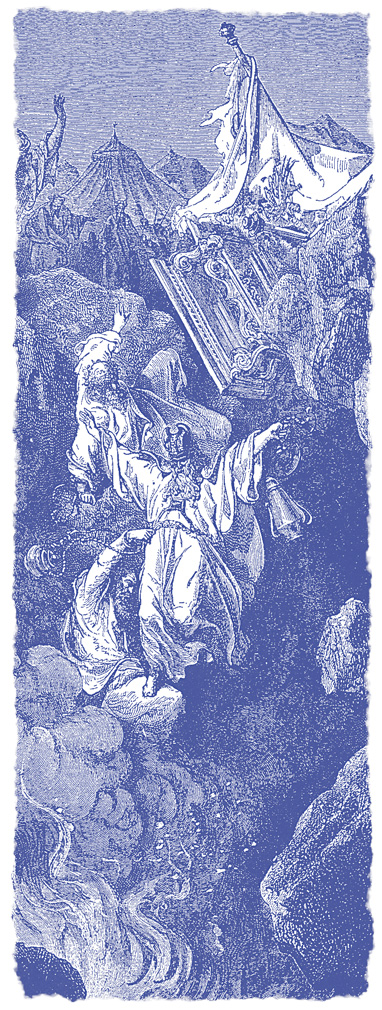
The Bible is not only a book of miracles, it is a miraculous book. It is a library of sixty-six books that inform readers about everything needed to live a life of contentment. The miracle is that a book with more than fifty authors guided by the divine Author over a period of two thousand years remains a bestseller!
A future Personal Bible Study Letter may examine how our Bible came to us in our modern English translations. But today, let’s focus on one chapter in the section of Israel’s poetry: Psalm 84. Psalms is the “song book” of Israel, and portions are set in praise music today.
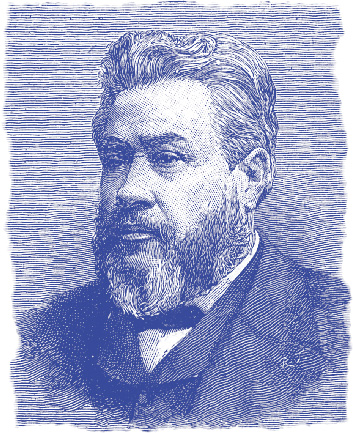
“THE PEARL OF PSALMS”
English pastor C.H. Spurgeon (1834–1892) called Psalm 84 “the pearl of Psalms.” What makes this psalm so unique, so special? It is not one of the ascent Psalms (Psalms 120–134), but it does describe a journey to the Tabernacle. As you may recall, Korah (the great-grandson of Levi) and 250 other leaders began to protest against Aaron and Moses. Consequently, Moses challenged this rebellious group to settle the issue at the “tent of meeting.”
The issue was definitely settled: Numbers 16 records that the earth opened up and swallowed Korah, Dathan, Abiram, and their families. It also notes that the 250 rebellious leaders were consumed by fire. In all this chaos, the sons of Korah didn’t die. In fact, Numbers 26:58 mentions the Korahites. This Psalm is noted as a psalm (song) of the sons of Korah. The sons were not punished for the sins of their father. They understood the great grace of God and joy of worship in His house. The authorship of this Psalm is unclear, but it reads like something David would have penned.
THE FIRST FOUR VERSES
The first four verses of this Psalm bring out a true longing to be in God’s House. I have mentioned in previous Personal Bible Studies what a joyful occasion it is when God’s people gather for worship. One can sense the excitement in these first verses.
How lovely is Your tabernacle, O Lord of hosts! My soul longs, yes, even faints for the courts of the Lord; my heart and my flesh cry out for the living God. (Psalm 84:1–2)
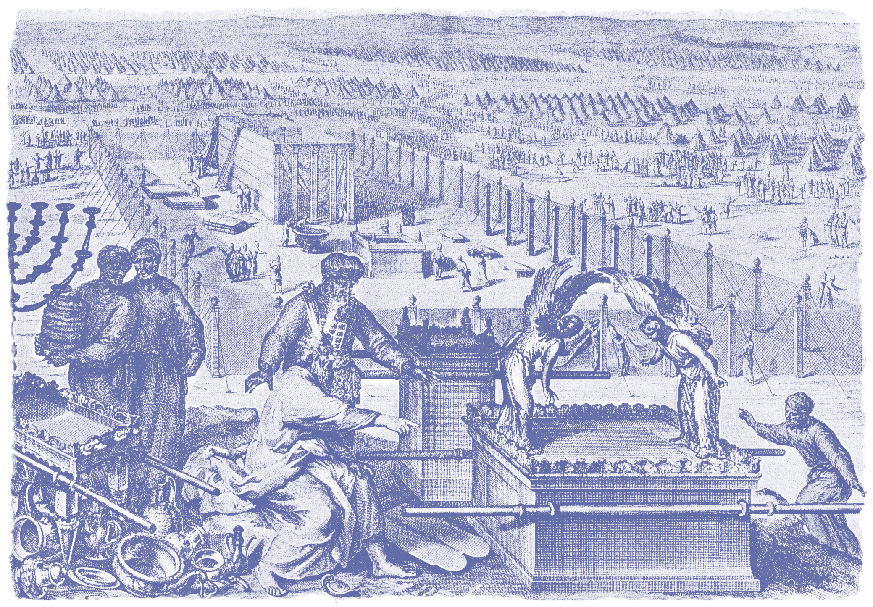
A pilgrimage to the Tabernacle, and later to the Temple, constituted a significant feature of Jewish life. The words “my soul longs” sound like David, but it should also bespeak the sentiment of all worshipers when they anticipate and prepare for worship. Everything about this house of worship captivates the Psalmist — to the point of envying the sparrows and swallows because they can nest around the house of God and feed on the crumbs the worshipers leave behind.
In the movie Mary Poppins, an old beggar woman sits on the steps of St. Paul’s Cathedral, the faces of the Apostles carved into the frieze of the surrounding portico. She is feeding the birds. That scene reminds me of this Psalm and the Psalmist’s desire to nest in the Tabernacle, depending on God to provide the spiritual sustenance a Believer (“Believer” is short for “believer in Yeshua/Jesus as Messiah.”) needs!
VERSE 4
Verse 4 points to a period of worship when lingering in meditation and prayer becomes a time of refreshing. A day is coming, according to John in Revelation 21:2–5, when all Believers will experience what the prophets and apostles wrote about during their time on earth.
Then I, John, saw the holy city, New Jerusalem, coming down out of heaven from God, prepared as a bride adorned for her husband. And I heard a loud voice from heaven saying, “Behold, the tabernacle of God is with men, and He will dwell with them, and they shall be His people. God Himself [emphasis mine] will be with them and be their God. And God will wipe away every tear from their eyes; there shall be no more death, nor sorrow, nor crying. There shall be no more pain, for the former things have passed away.” Then, He who sat on the throne said, “Behold, I make all things new.” And He said to me, “Write, for these words are true and faithful.”
VERSES 5–8
Verses 5–8 clearly show the longing to maintain a surrendered life. It is not enough to make the journey to the Tabernacle; the blessing comes to those who have prepared for worship. The Psalmist tells his readers that they are blessed whose “heart is set on the pilgrimage.” What’s that? You cannot leave your heart at home and expect to experience true worship. The Shema comes to mind here: “Hear, O Israel: The Lord our God, the Lord is one! You shall love the Lord your God with all your heart, with all your soul, and with all your strength. And these words which I command you today shall be in your heart.” (Deuteronomy 6:4–6)
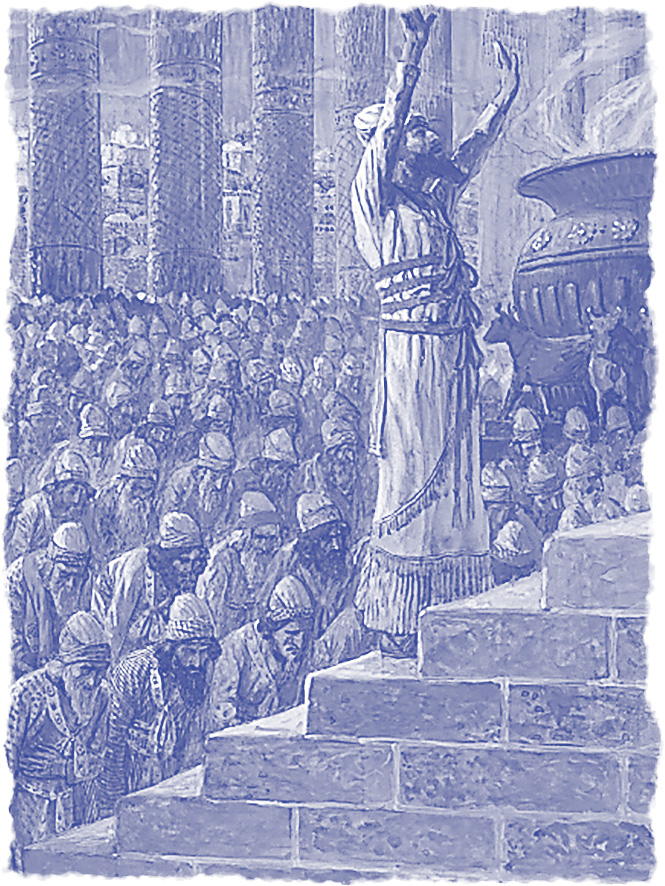
A joyful life is the result of a surrendered life. “Delight yourself also in the Lord, and He shall give you the desires of your heart.” (Psalm 37:4)
VERSES 6–8
Verses 6–8 remind us that even though the journey may become wearisome, reaching the destination is often followed by renewed energy and excitement. Once the Old Testament worshipers had the Tabernacle in view, their steps were quick and their burdens light. That also seems to be the experience of pilgrims in our modern-day travels to Israel. After a wait in the airport and an intercontinental flight in a confined space, a renewed energy appears on their faces as the coastline of Tel Aviv comes into sight and the announcements begin regarding arrival in the land of Abraham, Isaac, and Jacob!
THE FINAL VERSES
The final verses (9–12) prove that the writer of this Psalm has a deep desire for the presence of God. “For a day in Your courts is better than a thousand. I would rather be a doorkeeper in the house of God than dwell in the tents of wickedness” (vs. 10). Regardless of the number of our days on this Earth, not a thousand days could replace one glorious day in service to our Lord! A satisfaction accompanies our sensing the presence of God in our lives. We rejoice in the salvation that Yeshua has purchased, and know that we have stayed the course in our spiritual walks.
The Psalmist gives us a true picture of his commitment and longing for God when he says that he would rather be able to stand at the threshold and peek inside the House of God than be on the stage of the world’s greatest forums. That’s what grace does for us, as voiced in verse 11: “The Lord will give grace and glory.” We could not ask for anything more wonderful!

Standing firm with Israel and ZLM,

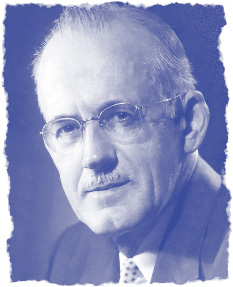
P.S. American pastor A.W. Tozer (1897–1963) said it best: “God is trying to call us back to that for which He created us, to worship Him and to enjoy Him forever!” (What Ever Happened to Worship? Camp Hill, PA: Christian Publications, 1985, p. 12) 

Zola Tours
Our Fall Tour pilgrims are only weeks from heading to Greece and Israel for our study tour in mid September. Traveling as a tour family, we experience firsthand the rich Christian and Jewish history of Greece’s beautiful and historic Biblical sites. Have you ever dreamed of touring the Greek islands of Mykonos, Crete, Patmos (where Apostle John was given the revelation), and breathtaking Santorini? Our seasoned teams of land agents make all of those experiences accessible and memorable. And if a cruise and land tour of Greece weren’t sufficiently glorious, after following Paul’s footsteps, we fly to Israel!
Folks who’ve read our reports are aware that these tours are topnotch. For everything you’d like to know about traveling with Zola Tours, please contact Sandra at 214-696-9760, or email her at travel@levitt.com. She’ll guide you through the registration process, including details regarding passports and domestic connections. Levitt.com/tours explains the following options:

| Deluxe (Israel only) | Sep 16–26 | $4,988 |
| Grand Petra (Israel & Petra) | Sep 16–29 | $6,188 |
| Grand Athens (Greece & Israel) | Sep 10–26 | $7,988 |
| Ultra Grand (Greece & Israel & Petra) | Sep 10–29 | $9,188 |
| Deluxe (Israel only) | Mar 16–26 | $5,288 |
| Grand Petra (Israel & Petra) | Mar 16–29 | $6,488 |
A Note from David and Kirsten
Thank you, Tony, for such an inspiring Bible study. We definitely can confirm the intense desire to ascend to Jerusalem, the Holy City, every time we take a pilgrimage to the Holy Land. Something about that magnetic city draws one’s soul. One day we will all see the King sitting on His throne on Mount Moriah — His right and proper place to dwell on Earth. Until that day, we consider walking that blessed land with each Zola Tour an incredible opportunity.
On page 23 of the August Levitt Letter, a ZLMer from Virginia complained that she had somehow stopped receiving our “free” news magazine. Her quotation marks around the word free were appropriate because, of course, nothing that this ministry mails is free. It costs tens of thousands of dollars every month to send our news magazine and Bible study letter to subscribers. Rest assured, we will continue to send these publications without subscription fees, because, thankfully, many like you have jumped on board to help underwrite our costs. Such giving affirms that what we send is worthy — Biblically insightful and brimming with anointed teaching to help you walk out your faith.
In our world of pervasive media negativity, ZLM’s voice ceaselessly declares the refreshing Good News of Yeshua. We offer truthful updates about what is happening in the Holy Land and how today’s current events relate to you and your calling. All our ministry workers feel called to continue this mission from God. But let’s be honest: Declining funds have made our efforts more challenging than ever.
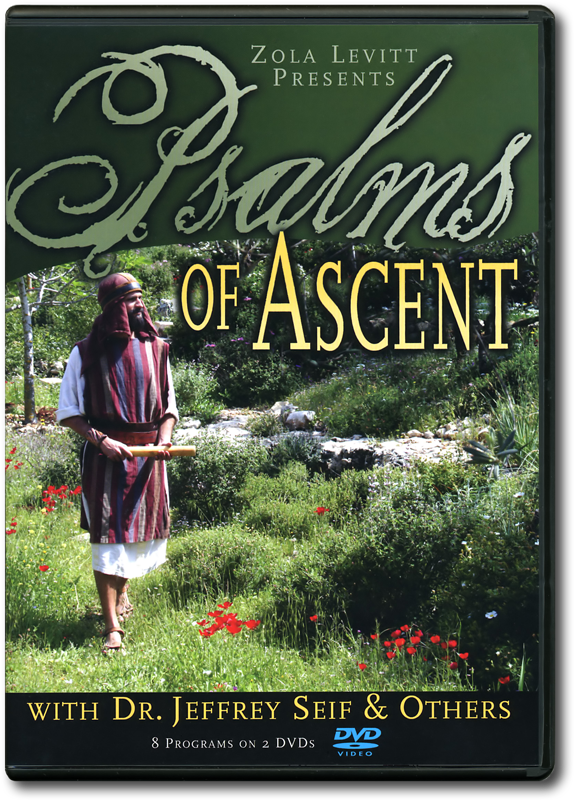
What are we asking of you? Simply to continue your faithful financial support of ZLM’s mission. Regular monthly giving helps us keep the TV cameras rolling and the newsletter presses running. Wouldn’t it be wonderful not to wonder whether we could afford to add a new national television network? If everyone reading this Personal Bible Study Letter would become a regular giver, we could more accurately budget and commit to making our Bible teaching available to new readers and viewers. Signing up for Zola’s Monthly Gift Program automates your giving and allows us to creatively reach out to Believers and unbelievers. That goal is where we focus our hopes and prayers.

On Zola Levitt Presents (ZLP) this month
In August, we will finish the encore series Psalms of Ascent and then revisit Zola Levitt’s teaching on The First Christians.
Psalms of Ascent
- Psalm 134
- This episode concludes the eight-program series, having seen many coming up to Jerusalem, seeking and praising God. On the Mount of Olives, Jeffrey Seif invites all Believers to journey together to our ultimate destination. Marty Goetz sings a wonderful rendition of “Benediction.”
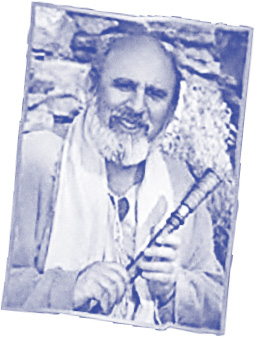
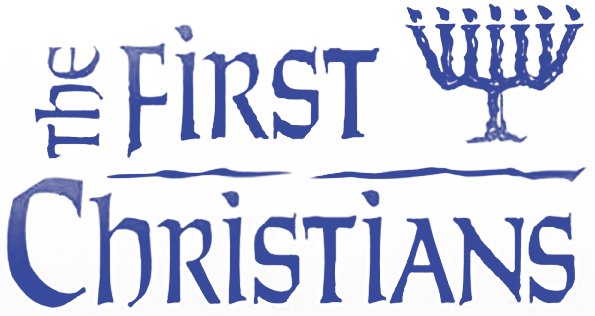
We can’t afford to create 52 new programs every year, but because many of you asked, we brought back a classic Zola teaching series from 1995, The First Christians (beginning August and running through early October). The programs have been refreshed and updated with Jeffrey Seif’s analysis, but still retain Zola Levitt’s teachings, the original interviews, dramas, plus music. Centering a Bible study around The First Christians would enable your Sunday School class to learn about first-century Believers. We know you will enjoy this revitalized nine-part teaching.


The First Christians
The life and times of those who first believed in Jesus. Produced on location in Israel, this instructional series explores the background of the customs and manners in Jesus/Yeshua’s day, unearthing the Jewish roots of Christianity. God chose this one people to speak to all humanity for all time. This series seeks to better understand the people with whom He chose to reside on Earth.
- Birth
- In first-century Israel, a newborn was cleansed, rubbed with salt and olive oil, and then wrapped in swaddling clothes (linen bandages). This birth brought with it the fullness of the covenant and redemption.
- The Home
- By today’s standards, the first-century house was small, dark and, in the winter, very cold. But meals were prepared in this common area where the family sat together to break bread and partake of meaningful feasts, such as Passover.
- Livelihood
- Fishing was the main source of livelihood in first-century Galilee. We learn how Peter, James, and John went about it and how twelve imperfect and ordinary Jewish tradesmen were chosen as disciples to witness firsthand the manifestation of mankind’s redemption.
- The Family
- The first-century family was knit together by and dependent on … olives! From picking to pressing to their use as lamp fuel, olives served as an integral part of Jewish family life. Zola presents the spiritual significance of oil, using the Lord’s parables.
Pray for the peace of Jerusalem! — Psalm 122:6

David & Kirsten
P.S. Thank you from the bottom of our hearts for realizing the timely importance of keeping Zola’s vision and mission alive. 

 Zola Levitt Ministries is ECFA approved and has Charity Navigator’s top rating of 4 stars, plus Ministry Watch’s Give With Confidence Score of 100.
Zola Levitt Ministries is ECFA approved and has Charity Navigator’s top rating of 4 stars, plus Ministry Watch’s Give With Confidence Score of 100.

